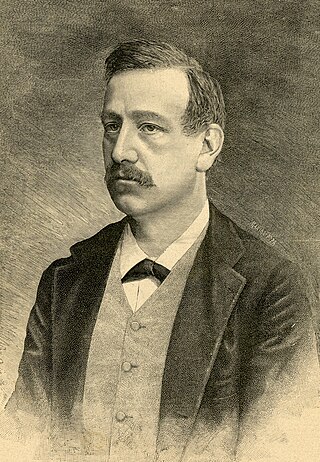Top Qs
Timeline
Chat
Perspective
Ferdinando Martini
Italian writer and politician From Wikipedia, the free encyclopedia
Remove ads
Ferdinando Martini (30 July 1840 – 24 April 1928) was an Italian writer and politician who served as the governor of Italian Eritrea from 1897 to 1907. He was a member of the Chamber of Deputies.
Remove ads
Early life
Ferdinando Martini was born in Florence, Grand Duchy of Tuscany, on 30 July 1840,[1] to Marianna and Vincenzo Martini. His father was the Secretary General of Finance for Tuscany. His mother died from cholera when he was 14, and his father died in 1862.[2][3]
Martini performed poorly in school and did not attend university.[3] The University of Padua gave him an honourary degree.[2] He was a member of the Freemasons.[3]
Remove ads
Career
Summarize
Perspective
Literary
Martini won an award for his comedy I nuovi ricchi in 1863.[3] Martini edited the dramatic works of his father in 1876.[2] He founded Fanfulla della domenica in 1879, and Domenica letteraria in 1882.[2][4]
The memoirs Giuseppe Giusti, which were written from 1845 to 1849, were published by Martini in 1890.[5] In 1918, he published the diary of Count Luigi Passcrini de Rilli.[6] Martini published his autobiography in 1922.[7]
Political
In the 1874 election Martini ran for a seat in the Chamber of Deputies for the Pescia, but lost in the runoff; the election in that district was later annulled.[8][3] He won an 1875 by-election by 20 votes, but this was annulled again. He won the election by 16 votes on 30 January 1876, and received almost 90% of the vote in the general election later that year. He won in the 1880 election by three votes.[3]
Martini joined the Constitutional Democratic Party in 1913. He lost in the 1919 election.[3]
Martini was the Minister of Public Education from 1892 to 1893.[9] In 1910, Martini was appointed as Italy's ambassador to Argentina.[3] From 1915 to 1916, Martini was the Minister of the Colonies. Martini was appointed to the Senate of the Kingdom of Italy in 1923.[9]
Eritrea
Martini supported Italy's colonial ventures in Africa as he believed that the plentiful lands were not being properly used by the indigenous people.[10] However, when he became governor of Italian Eritrea he pushed for it to be used for raw materials rather than settlement.[11]
Before the outbreak of the First Italo-Ethiopian War Martini warned the Italian government that they did not have enough soldiers to properly conduct the campaign.[12] He later noted that the British were able to conduct their campaign against the Mahdist State as they had a large base in Egypt, which the Italians lacked for a campaign against Ethiopia.[13]
On 30 November 1897, Martini was appointed as governor of Italian Eritrea.[14] He was the first civilian governor of Italian Eritrea.[15] He served as governor until 1907.[16]
A significant amount of the Italians to immigrated to the colony returned home, which the Italian government was paying for. Martini issued an order on 1 December 1898, which required immigrants to provide a certificate proving that they had the means to sustain themselves in the colony and that they would cover at least half of the cost to repatriate themselves to Italy.[17] Italian workers were required to contribute 10% of their salary for a fund to cover their repatriation up until it reached 250 Italian lire.[18]
Remove ads
Personal life
Martini married Giacinta Marescotti in 1866.[3] Martini died in Monsummano Terme on 25 April 1928.[19][9] His manuscripts were given to the National Central Library.[2]
Political positions
Martini supported universal suffrage starting in 1881, and supported women's suffrage. He supported Italy joining World War I on the side of the Triple Entente. He supported the Manifesto of the Fascist Intellectuals.[3]
Literary works
- Chi sa il gioco non l'insegni (1871)[9]
- Il peggio passo è quello dell'uscio' (1873)[9]
- Fra un cigaro e l'altro (1876)[9]
- Di palo in frasca (1891)[9]
- Nell'Affrica Italiana, Impressioni e Ricord (1891)[20][9]
- Al teatro (1895)[9]
- Cose africane, da Saati ad Abba Carima, discorsi e scritti (1896)[7][9]
- Sympathies . Studies and memories (1900)[9]
- Pagine collezioni (1912)[9]
- Relazione sulla Colonia Eritrea del regio Commissario civile (1902-1907) (1913)[21]
- Confessioni e ricordi (1922)[7]
- Diario Eritreo (1942)[21]
- Diario 1914-1918 (1966)[3]
Remove ads
References
Works cited
External links
Wikiwand - on
Seamless Wikipedia browsing. On steroids.
Remove ads

